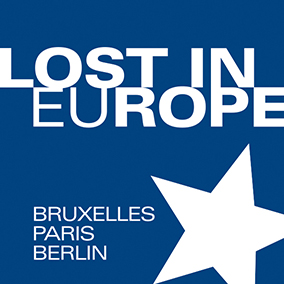MEP's reject possibility of resuming normal EU-Paraguay relations
PRESS RELEASE BY JURGEN KLUTE, ANA MIRANDA, HELMUT SCHOLZ AND RAUL ROMEVA
In response to the visit of the Paraguayan president-elect to Brussels, several members of the European parliament have rejected the possibility of resuming normal relations between the EU and Paraguay in light of major human rights violations in the South American nation. A statement was sent out by MEP's shortly before the visit of president-elect Horacio Cartes. The authors criticize, above all, that a massacre that left 17 people dead in June of 2012 has not yet been clarified and was used to stage a political trial against the then democratically elected president and impeach him.
ESPAÑOL & ENGLISH
Brussels, 25th June 2013
Paraguayan president-elect arrives in Brussels for an "informal" tour
PRESS RELEASE
First, the long score on human rights
MEP's believe there are no grounds to resume normal EU-Paraguay relations,
A year after the massacre of Curuguaty, Paraguay's president elect begins his international tour with a trip to Europe. The massacre of June 15, 2012, that left 17 people dead, was used to organize a political trial against then democratically elected president, Fernando Lugo, and impeach him. A procedure highly criticized by regional and international organizations who called it a parliamentary coup.
"The UN has criticized both the impeachment of president Lugo as well as the totally biased investigation of the Curuguaty killings. The murder of 11 peasants and later of a key witness hasn't been looked into, nor the extra-judicial executions, the illegal detentions, torture, or the presence of snipers at the crime scene. It's astonishing, not even the ownership of the land has been clarified. It's clear there is a lack of political will in this regard, and this we've stressed in an open letter to High Commissioner Catherine Ashton", asserted Jurgen Klute, German MEP for the GUE/NGL.
"President-elect Cartes has chosen this trip to Europe to thank certain governments and the EU Commission for their failure to oppose the parliamentary coup last June," declared Raul Romeva, Catalan MEP for the GREENS/EFA. "The coup allowed the Colorado Party, the group of former dictator Alfredo Stroessner, to return to power." Horacio Cartes is also a member of the Colorado Party. According to Wikileaks, the DEA (Drug Enforcement Agency) has surveyed Cartes in the past for alleged links to drug traffickers and money laundering.
Helmut Scholz, MEP from Germany and GUE/NGL coordinator for international trade policy, expressed concerns regarding Cartes's role in Latin American regional integration. "With the Mercosur Summit in a couple weeks, the President-elect's continual refusal to recognize Venezuela's membership in Mercosur is not helpful. Furthermore, his move in making Paraguay an observing member of the new Pacific Alliance could ultimately push the country into leaving its established customs union with its neighbours."
Raul Romeva recalled that Paraguay suffers from a severe problem of land concentration. Under Stroessner, about 10 000 farmers and natives were brutally displaced in Paraguay to make way for the soy agribusiness. "The country is losing 400 000 hectares of forest per year. These are irreversible damages and will lead to an overall desertification of the country."
MEP's feel that any cooperation and talks with Paraguayan authorities must have the pending score on human rights, social and environmental issues as a main focus. They were baffled by a working dinner to be held in the European Parliament with Cartes. "We can't get ahead of ourselves" said Ana Miranda, Galician MEP for the Greens/EFA, who was part of the mission to Paraguay following the coup against President Lugo. "First we need reliable evidence of responses to the mayor infringements to the rule of law in the country once the president-elect has assumed his post in mid-august 2013. When we talk about legal certainty, she concluded, we refer to that of the citizens of Paraguay, not that of foreign companies."
****
Bruselas, 25 de Mayo del 2013
Visita informal de presidente electo del Paraguay a Bruselas
COMUNICADO DE PRENSA
Primero la larga cuenta pendiente de derechos humanos
No hay bases para normalizar las relaciones UE-Paraguay, opinan eurodiputados
A un año de la masacre de Curuguaty, el presidente electo de Paraguay inicia con un viaje a Europa, su primera visita al exterior. La masacre del 15 de junio del 2012 que dejó un saldo de 17 muertos fue instrumentalizada para organizar un juicio político contra el presidente democráticamente electo, Fernando Lugo y destituirlo. Acción fuertemente criticada por los organismos regionales e internacionales, quienes la calificaron de Golpe Parlamentario.
"La ONU ha criticado tanto la destitución del presidente Lugo como la investigación totalmente sesgada de la matanza de Curuguaty. No se ha esclarecido el asesinato de 11 campesinos y posteriormente uno de los testigos claves, ni se han investigado las ejecuciones extra-judiciales, las detenciones ilegales, la tortura, ni la presencia de franco-tiradores en la escena del crimen. Es escandaloso, ni siquiera la titularidad de las tierras está clara. Para nosotros es evidente que no hay ninguna voluntad política al respecto, como lo hemos manifestado públicamente en una carta abierta a la Alta Representante de la UE, Catherine Ashton", dijo Jürgen Klute, eurodiputado alemán del grupo GUE/NGL.
"El presidente electo opta por viajar a Europa para agradecer a ciertos gobiernos y la Comisión Europea su falta de posición firme contra el golpe parlamentario, en junio del año pasado", dijo Raül Romeva, eurodiputado catalán de los Verdes/ALE. "El golpe permitió al Partido Colorado, partido del dictador Stroessner, regresar al poder en las elecciones de abril 2013 ." Horacio Cartes es igualmente miembro del Partido Colorado. Según Wikileaks, la DEA (Departamento Anti-Drogas de los Estados Unidos) ha vigilado a Cartes en años pasados por presuntos vínculos con la mafia de la droga y lavado de dinero.
Helmut Scholz, eurodiputado alemán de la GUE/NGL y coordinador de comercio internacional, expresó su preocupación ante el rol que Cartes jugará en la integración regional Latinoamericana: "La próxima Cumbre del Mercosur se acerca y nos preocupa que el presidente electo continúe rechazando reconocer la membresía de Venezuela en el Mercosur. Además, su iniciativa de hacer ingresar a Paraguay unilateralmente como miembro observador de la recién creada Alianza del Pacifico podría por ultimo empujar aquel país a abandonar la unión aduanera establecida con sus vecinos."
Raul Romeva recordó que Paraguay padece de un agudo problema de concentración de la tierra. Bajo el dictador colorado Stroessner, unos 10 000 campesinos e indígenas fueron brutalmente desplazados, para abrir campo a la agroindustria de soja. "El país pierde 400 000 hectáreas anuales de bosque. Los daños son irreversibles y llevarán a la total desertificación del país".
Los eurodiputados consideraron que cualquier comunicación y eventual cooperación con las autoridades de Paraguay tiene que tener como enfoque la cuenta pendiente de derechos humanos, incluidos los sociales y ambientales. Expresaron extrañeza por un almuerzo de trabajo en el Parlamento Europeo. "No hay que adelantarse", dijo Ana Miranda, eurodiputada gallega de los Verdes/ALE quién participó en la misión a Paraguay después del golpe de estado al Presidente Lugo. "Primero necesitamos señales fidedignas de solución a las graves faltas del estado de derecho en el país, una vez que el presidente electo haya asumido su cargo a mediados de agosto 2013. Cuando hablamos de seguridad jurídica, nos referimos a las ciudadanas y ciudadanos en Paraguay, no a las empresas extranjeras", concluyó.




